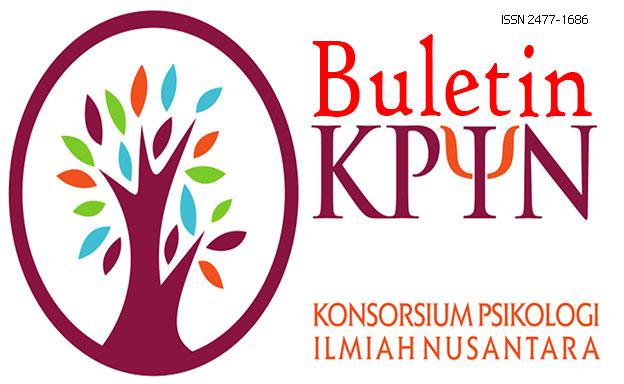Vol. 10 No. 03 Februari 2024
Why Did Gibran Use Offensive Strategy in Debate?
Possible Psychological Factors
By
Any Rufaedah
Department of Psychology Universitas Nahdlatul Ulama Indonesia &
Division for Applied Social Psychology Research (DASPR)
On January 21, 2024, Indonesians watched the use of an offensive strategy by the candidate of vice president Gibran Rakabuming Raka in the debate against his opponents Mahfud MD and Muhaimin Iskandar. He was the one who started the move, firstly by criticizing Muhaimin for reading a note in the debate. Gibran continued his offensive move by embarrassing Mahfud. He acted like someone looking for something and stated that he did not find answers to his question (Metro TV, 2024). The act triggered an emotional reaction from Mahfud, and he refused to give further response to Gibran. He said the question was “cheap” and did not deserve answers. Gibran's moves during the debate were contrary to what he regularly displayed to the public by bowing when he shook hands with older people. This article explores possible psychological factors behind Gibran’s act.
There are two big “boxes” of factors: conscious and unconscious. In the conscious box, first, Gibran intentionally applied an offensive strategy to defeat his debate opponents. By criticizing Muhaimin for reading a note and mocking Mahfud for failing to give a correct answer about greenflation, he tried to knock down the opponents’ quality. He also refused to explain the term "greenflation" and said that Mahfud, as a professor, supposedly understood the concept.
Secondly, Gibran wanted to position himself equally as Muhaimin and Mahfud, who have more experience working with the government and politics. As the youngest among others, he tried to give proof that he was capable and equal to his senior rivals. This effort was shown using foreign terms such as Lithium Ferro Phosphate (LFP), which not everyone knows. Using these terms, Gibran created an impression to the audience that his quality was not lower than that of Muhaimin and Mahfud. Align with this, Antonella Pisani in Harvard Business Review (2023) stated that young leaders often desire to be the “smartest person in the room” (para. 11). Gibran might try to show the same, as the most competent person in the debate forum.
In the unconscious box, Gibran’s offensive act was possibly affected by life experiences in high school and college. After finishing his junior high school, Gibran moved to Singapore for high school and completed college in the same country. Living abroad and competing with foreign students demanded him to fight and work extra hard than if he studied in Indonesia. This experience potentially developed a belief that fighting is an appropriate technique to win. People in the United States commonly believe this principle: they must fight to achieve desired results, especially in career, education, and human rights. Though Singapore is not the same as the US, it is seemingly closer to the US than to Indonesia in terms of this matter -Singapore is well known as a hardworking country with long working hours (Leu et al., 2023). Unfortunately, the "fighting" approach is unsuitable for the Indonesian context, where people highly respect older people.
Third, with only more or less two years of experience in politics, Gibran has not had much experience dealing with various personalities. He might not have enough references to deliver his ideas and make smooth moves without hurting others’ feelings. He might choose more acceptable methods if he had adequate experience in political negotiations that demand more flexible approaches. This is one of the consequences of racing in politics at an early age (young). Though knowledge of politics can be learned via training or mentorship, the actual experience would help Gibran achieve his goals without creating an adverse impression.
Furthermore, facilities and convenience Gibran gained as a son of Joko Widodo, who served as Solo Mayor for two terms, as a Governor of Jakarta, and as an Indonesian president for two terms, possibly affecting Gibran’s sensitivity to others' feelings. His status possibly always puts him in a “safe” place with zero consequences, and backing up from his influential parents would have given Gibran a view that issues could always be handled. It made Gibran not worried about the risks of using an offensive strategy during the debate. Lastly, personality maturation might also have contributed to Gibran’s choice. Zaria Gorvett (2020) reviewed that traits and personality change throughout life. Research shows that older people are more altruistic (Pornpattananangkul et al., 2019) and can control their emotions better than younger ones (Damian et al., 2019).
References:
Damian, R. I., Spengler, M., Sutu, A., & Roberts, B. W. (2019). Sixteen going on sixty-six: A longitudinal study of personality stability and change across 50 years. Journal of personality and social psychology, 117(3), 674–695. https://doi.org/10.1037/pspp0000210
Gorvett, Z. (2020, March 16). How your personality changes as you age. BBC. Retrieved January 28, 2024 from https://www.bbc.com/future/article/20200313-how-your-personality-changes-as-you-age
Leu, J., Rebello, S. A., Sargent, G. M., Kelly, M., & Banwell, C. (2023). Hard work, long hours, and Singaporean young adults' health-A qualitative study. Frontiers in public health, 11, 1082581. https://doi.org/10.3389/fpubh.2023.1082581
Metro Tv. (2014, January 21). [Full] - Debat keempat Cawapres Pemilu 2024, 21 January 2024. YouTube. https://www.youtube.com/watch?v=rq2XUsYbm9U
Pisani, A. (2023, June 12). What new leaders shouldn’t do. Harvard Business Review. Retrieved January 29, 2024 from https://hbr.org/2023/06/what-new-leaders-shouldnt-do
Pornpattananangkul, N., Chowdhury, A., Feng, L., & Yu, R. (2019). Social Discounting in the Elderly: Senior Citizens are Good Samaritans to Strangers. The journals of gerontology. Series B, Psychological sciences and social sciences, 74(1), 52–58. https://doi.org/10.1093/geronb/gbx040


